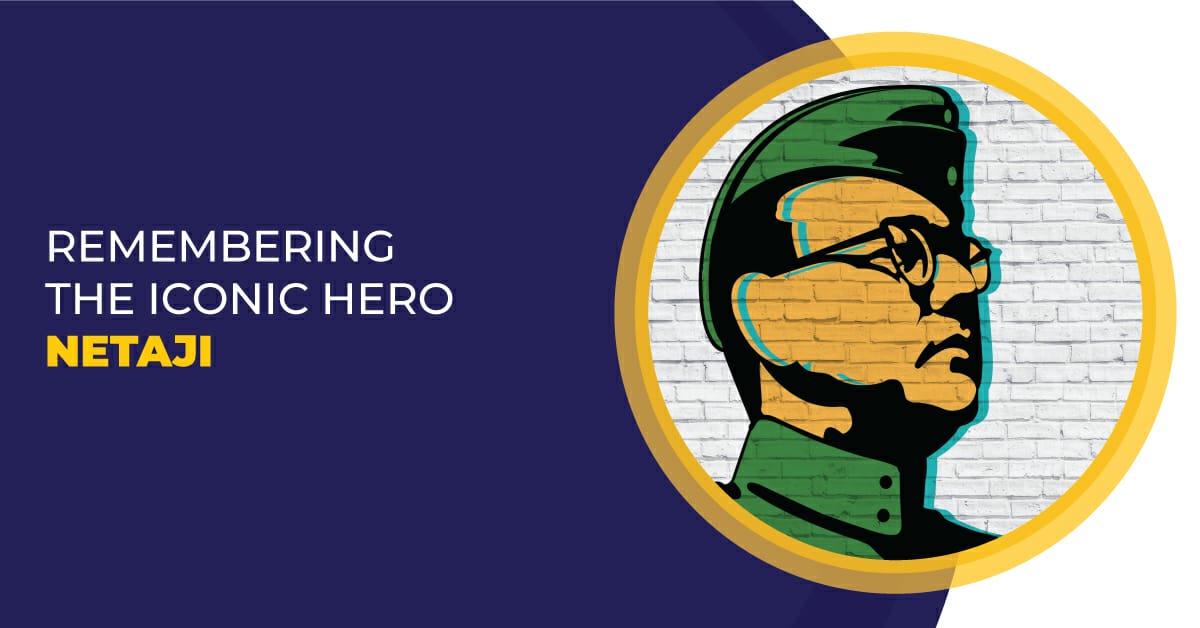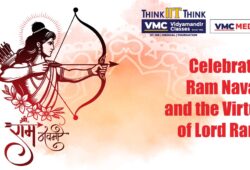REMEMBERING THE ICONIC HERO NETAJI
 Posted On
Posted On
335 total views, 2 views today
“Forget not , that the grossest crime is to compromise with injustice and wrong;
Remember the eternal law: YOU MUST GIVE IF Y0U WANT TO GET”.
: Netaji Subhas Chandra Bose
Well, the moment we say, read or hear this quoted speech, the glimpse of a “True Hero” flashes in front of our eyes and our humble heads bow down for him! Yes, we are talking of none other than the iconic Subhas Chandra Bose, our own “Netaji“, whose indomitable spirit, bravery, courage and defiant patriotism is still revered by millions… A brilliant student, a fierce Nationalist, a true lover of our Motherland, an outstanding speaker, and a born leader- Netaji is all our all time Hero.. Let’s recapitulate his life, thoughts and freedom struggle once more on his Birth Anniversary.
EARLY LIFE AND EDUCATION
Born on 23rd January 1897, in Cuttack Orissa Division , Bengal Province to an advocate family and the ninth child of Prabhavati Dutt Bose and Janakinath Bose. He was at first admitted to Protestant European School in Cuttack and then shifted to Ravenshaw Collegiate School, wherein he secured second position in Matriculation examination. He then got admitted to Presidency College in the then Calcutta. From his early age, he was tremendously drawn towards the teachings and philosophies of both Swami Vivekananda and Ramkrishna Paramhansha and their influences molded his thoughts throughout his life. Although admitted to Presidency College, he was expelled from there, due his assault of Professor Oaten, who had made some offensive remarks upon some Indian students. Then he joined Scottish Church College and passed B.A in Philosophy in 1918. Following his father’s wishes, he left India for Europe and appeared for Indian Civil Services examination. Although he stood 4th in the Examination, he didn’t take the service, as he was not inclined to serve the British. Hence he resigned from the same and came back to India.
POLITICAL CAREER AND IDEOLOGIES.
The anti-Indian comments of the British and their offensive behaviors on the innocent mass, began to influence his thinking from an early age. In 1923, he was elected as the President of the All India Youth Congress and the Secretary of Bengal State Congress . Though in his early political career, he worked closely with Nehru and Gandhi, his stance on the establishment of Indian National Congress on the anti-imperialist front and the use of force against the British for unqualified Swaraj, got him into a confrontation with Gandhi, who believed in the theory of non-violence. Hence he resigned from the Presidency of the Indian National Congress and founded his own party All India Forward Bloc. Bose advocated complete unconditional freedom for India, whereas All India Congress wanted it in phases. A great admirer of Gandhi in his early political career, broke up with the latter due to ideological confrontations as Bose strongly believed that, Mahatma’s idea of non-violence could never achieve complete freedom for India. This stance of Netaji didn’t change with the Second World War, which he saw it as an opportunity to explore the weakness of the British and pave freedom for India. On January 1941, “this rebel man” fled from his Calcutta residence in disguise, although closely watched by the British, and travelling via Kabul and Moscow he reached Germany.
THE INA OR AZAD HIND FAUJ
He travelled to Imperial Japan too, seeking an alliance for helping him to fight against the British government. With the help of the Imperial Japanese, he reorganized and led the Indian National Army, The INA or Azad Hind Fauj, formed with Indian prisoners of war. In 1942, he earned the title “Netaji”, as he was fondly called by the Indian soldiers of Azad Hind Fauj in Germany. The troops of the INA were under the patronage of a provincial government, which came to produce its own currency, postage stamps, civil code and recognized by nine axis states. The role of this INA in Indian struggle for Independence is undoubtedly ever-remembering and etched in our hearts forever.
An advocate of Socialist politics, Netaji believed that socialism has earned its origins to Swami Vivekananda. As historian Leonard Gordon explains “Inner religious explorations continued to be a part of his adult life. This set him apart from the slowly growing number of atheistic socialists and communists who dotted the Indian landscape”. “Jai Hind” or Glory to India is the slogan used by him to motivate the INA soldiers, later used by the Government of India and armed forces. His immortal speech “Give me blood and I ll give you freedom“, was, is and will be worshipped and adored by the Indians ever and after. A progressive thinker, he strongly opined for women empowerment and in one of his famous speech he mentioned, “I want also a unit of brave Indian women to form a ‘Death-defying Regiment’ who will wield the sword, which the brave Rani of Jhansi wielded in India’s First War of Independence in 1857”.
Thus, this Great “Iconic Leader” will forever be immortal in our hearts, no matter what mysteries surround his disappearance.. Today on his 124th Birth Anniversary, we humbly pay our tributes to this “Real Hero of Indian Freedom Struggle”, who had showed us the path of courage, bravery, unconditional service and love to our Motherland.. Mention may be made of that recently the government of India has announced the Birth Anniversary of Netaji to be celebrated throughout the country as “Parakram Diwas”, keeping a lieu with his tremendous acts of bravery and sacrifice for our Nation. Let us end for today with one of the speech of “This Pilgrim Of Independence” : “Men, money and materials cannot by themselves bring Victory or Freedom.. We must have the motive-power that will inspire us to brave deeds and heroic exploits”.



